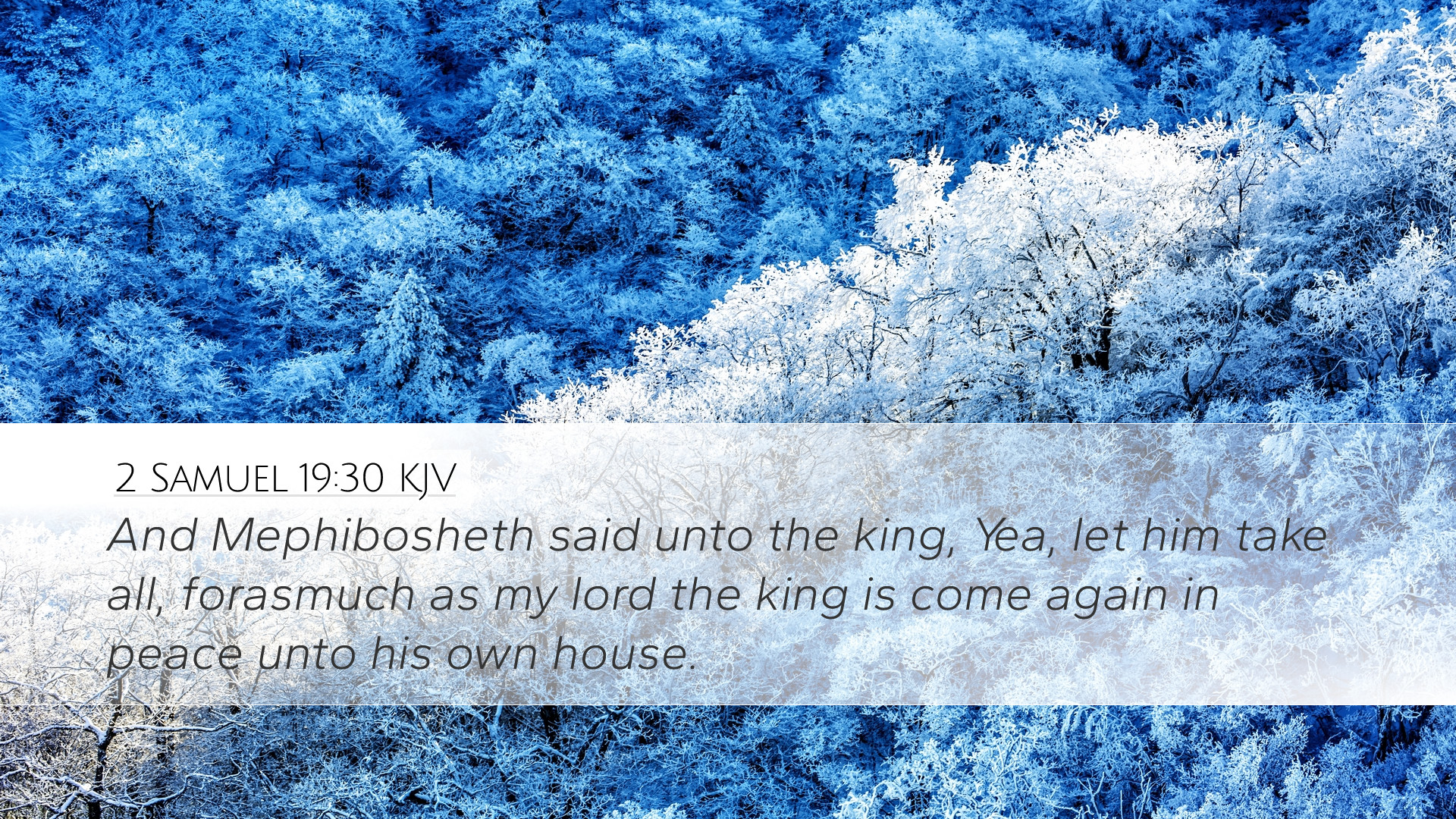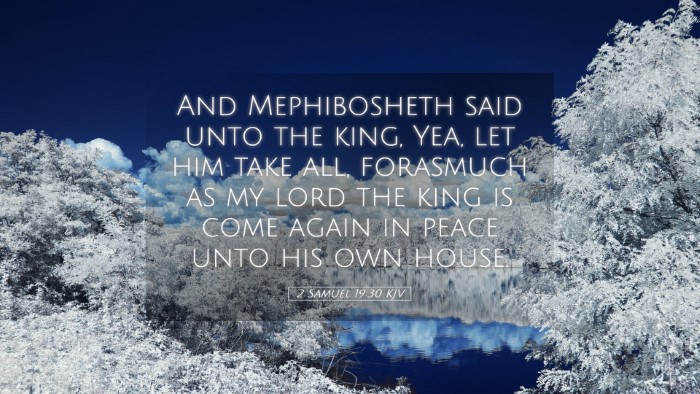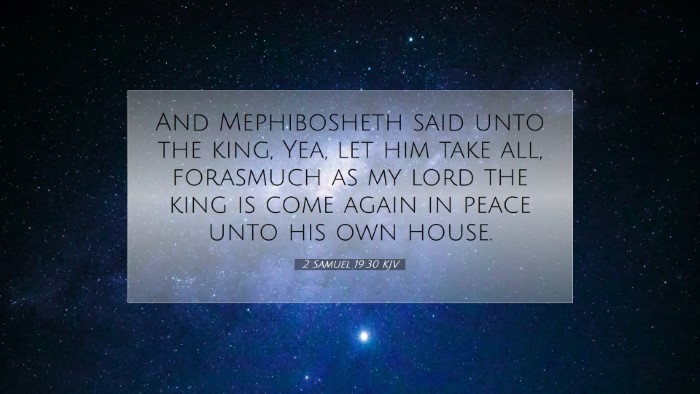Commentary on 2 Samuel 19:30
Bible Verse: "And Mephibosheth said unto the king, Yea, let him take all, forasmuch as my lord the king is come again in peace unto his own house."
Introduction
This verse is a pivotal moment in the narrative of 2 Samuel, showcasing the themes of loyalty, grace, and forgiveness. The character of Mephibosheth, the grandson of Saul, reflects deep emotional and theological dimensions which are essential for understanding David's reign and the kingdom's restoration.
Contextual Background
Mephibosheth, the son of Jonathan and a cripple from birth, had been living in exile due to the political tensions following Saul's death. David's return to power after Absalom's rebellion brought an opportunity for reconciliation and reassessment of loyalties. Understanding 2 Samuel 19:30 requires an appreciation of the broader narrative that highlights the interplay between David and Mephibosheth.
Exegesis of the Verse
In this verse, Mephibosheth’s response to King David is marked by humility and a profound recognition of David’s mercy. His declaration signifies a selfless attitude; he expresses that the restoration of David is of greater value than any material possessions he might have.
Key Themes
-
Loyalty and Honor: Mephibosheth’s loyalty to David emphasized the honor that he sought to convey despite not having the power or status that others wielded. His willingness to relinquish everything for the sake of his lord signifies true loyalty.
-
Grace and Mercy: This interaction emphasizes the themes of grace and mercy that permeate the Davidic covenant. David’s kindness towards Mephibosheth stands as a testament to the unconditional love that God extends to His people.
-
Restoration: The phrase "my lord the king is come again in peace" speaks to a restoration not only of David's kingship but also of relationships that had been fractured. Restoration in biblical texts frequently points to a deeper theological significance where broken lives are mended by divine grace.
Insights from Commentators
Matthew Henry
Henry characterizes Mephibosheth’s attitude as one of deep humility and self-sacrifice. He highlights the spiritual lesson that true possession comes not from material wealth but from alignment with divine will and peace. The absurdity of Mephibosheth's potential rivalry with the king showcases his rightful knowledge of place in God’s plan.
Albert Barnes
Barnes elaborates on the theme of Mephibosheth's actions as a model of faithful servants. He asserts that Mephibosheth’s response illustrates the joy that comes from divine restoration, distressing the falsehood of political maneuvering and instead promoting loyalty to God's anointed. The emphasis on peace conveys a biblical understanding of shalom, a wholeness that transcends mere absence of conflict.
Adam Clarke
Clarke provides a historical and contextual analysis, noting Mephibosheth's precarious position in a power transition. He underscores the importance of David’s approach to governance, showing a contrast between earthly power and divine authority. Clarke emphasizes the theological implications of restoration, highlighting that mercy has a transformative power that uplifts the downtrodden and re-establishes hope.
Theological Implications
The response of Mephibosheth is rich with implications for understanding God's grace. His acknowledgment of David’s peaceful return can be seen as a type of Christological foreshadowing where reconciliation with the King is at the heart of the Gospel message. The themes of selflessness, humility, and the recognition of spiritual authority resonate deeply within Christian theology.
Conclusion
2 Samuel 19:30 serves not only as a narrative moment but also as a theological reflection on the nature of loyalty, forgiveness, and divine grace. For pastors, students, and church leaders, this verse is a poignant reminder of the call to witness God's mercy and the joy of living in restorative relationships, both with God and each other.
Reflection Questions
- How does Mephibosheth's attitude challenge our understanding of loyalty in leadership?
- What does this passage teach us about the nature of grace and reconciliation in our own lives?
- In what ways can we embody the selflessness demonstrated by Mephibosheth in our relationships with those in authority over us?


